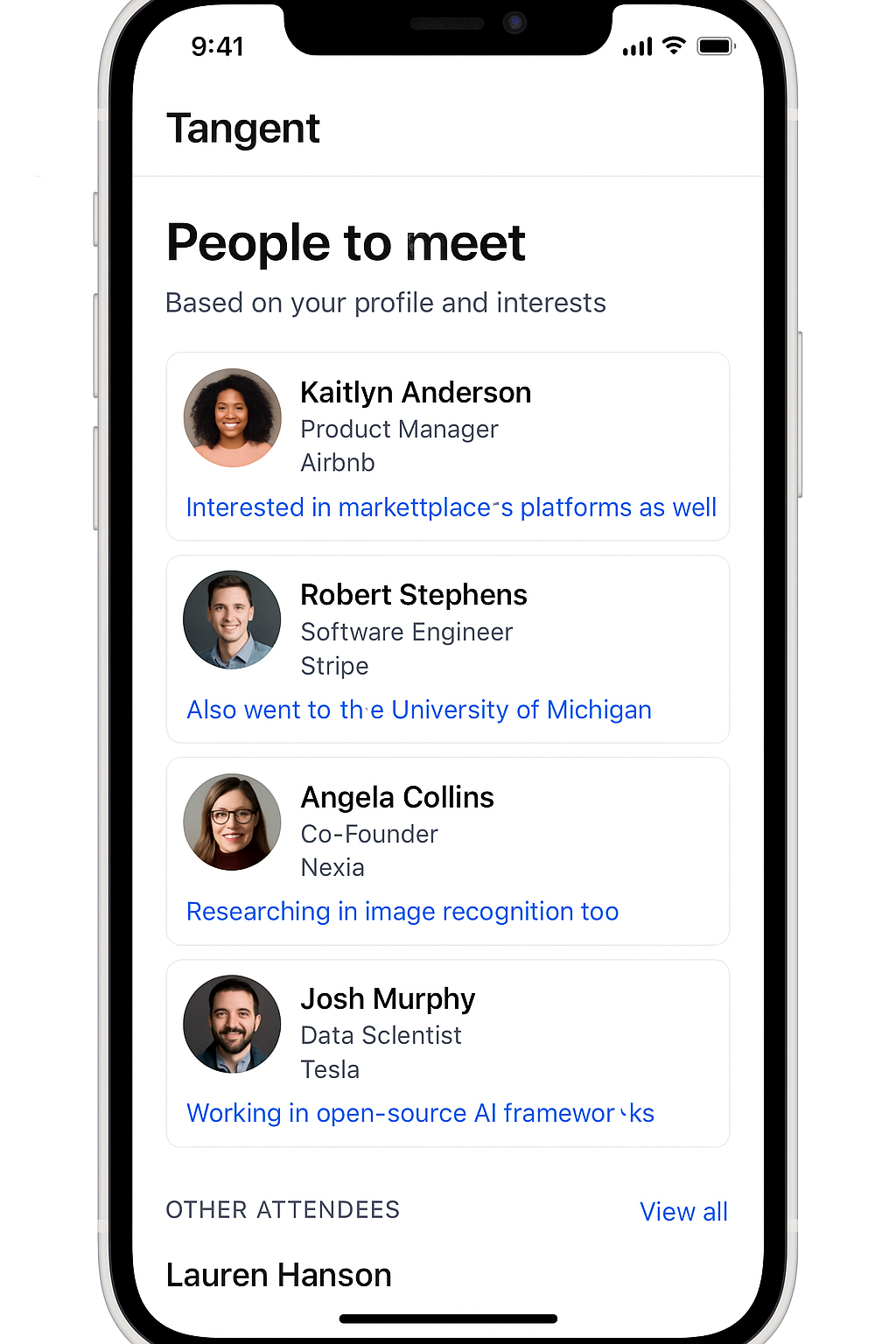Tangent
Built with Dylan Kong and Jing Xiang
High-density professional events (e.g. tech conferences, investor summits, founder retreats, accelerator demo days, company offsites, speaker dinners, and large networking mixers) are a core part of how information spreads and relationships form across industries. Theoretically, they are designed to create surface area for connection, collaboration, and opportunity.
But while these events concentrate potential, they rarely deliver on it. It feels like, as long as you choose events that are at least somewhat aligned with your goals and interests, the chances of a valuable interaction would be high. But the environments are unstructured and overloaded. You're surrounded by people with relevant experience, insight, or networks; but without the right context, most interactions stay surface-level or never happen at all. Are we really going to keep relying on chance to figure out who to talk to? (Obviously there's value in spontaneity in certain settings like a casual social mixer or a party; we're specifically talking about events that brand themselves as networking-focused or outcome-driven.)
Online platforms are more structured, but that doesn't mean they're working. LinkedIn, for example, is widely used but rarely liked. LinkedIn has historically ranked last among major social media platforms in user satisfaction. Colin Gallagher on X/Twitter in May two years ago in 2023 made a AI-powered google sheet to optimize filtering for LinkedIn. Two years later, we're still filtering people by company, school, and job title – but not by what they're actually doing, what they've shared, what you have in common, or what context you've crossed paths in. And LinkedIn doesn't even try to compile people around shared themes or opportunities.
In the last two decades, we've seen people optimize social media platforms for connections and now it's time we do the same for real life interactions. We want to take everything someone shares publicly across social media profiles, websites, bios, and more — and combine it with what they choose to share in the app. From there, Tangent builds an understanding of who that person is, what they care about, and where meaningful overlap might exist. From there, we want to connect people with those they'd most likely want to speak to and because Tangent surfaces what you have in common, you also know where to start the conversation.
We're working on a video demo for Tangent!!! In the meantime, here are some of the GitHub code files that we've made public: https://github.com/jessiedong01/tangent
